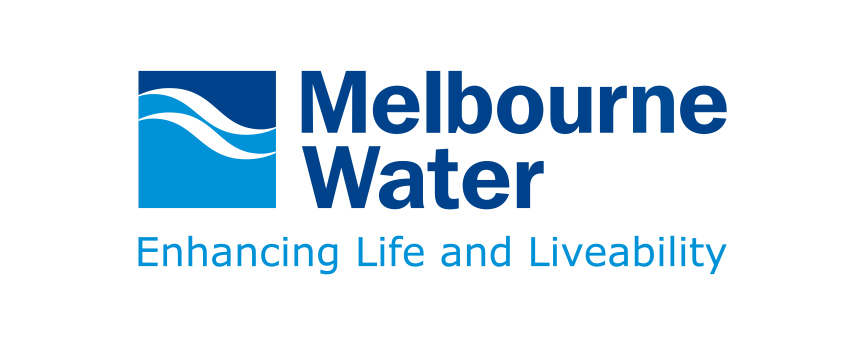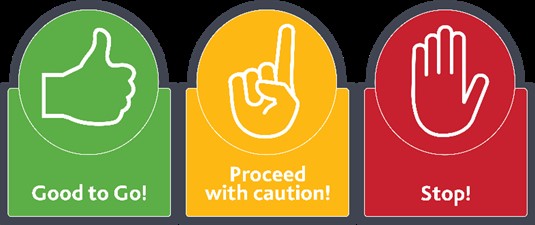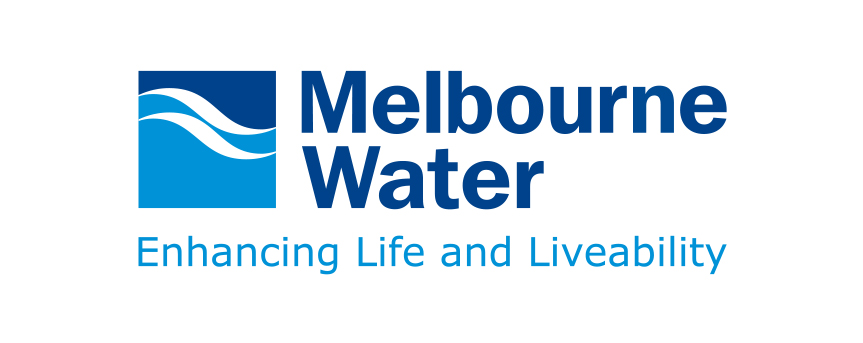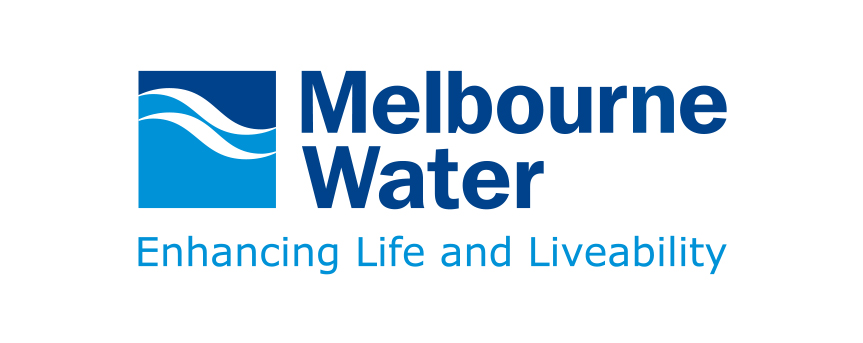Information
-
Customer Name
-
Document No.
-
Location
-
Waterway Name
-
Conducted on
-
Prepared by
Good to Go Assessment
-
•Before you start work •After an extended break or •When circumstances change
-
Is the site undergoing any high risk construction work?
-
Identify threats
- No threats - Good to Go
- 1 or 2 Threats - Proceed with caution
- More than 3 threats - Stop
-
Tools and Equipment - Item to have for insspection
-
Mandatory
-
1. Previous IAuditor inspection report 2. Most Recent Dam Safety Review from Dam Owner's Engineer 3. Probe (A Mighty Probe from Reece) 4. Tape measure (Long and Retractable Units) 5. Binoculars
-
Optional
-
1. Shovel 2. Stakes and Flagging tape 3. Drone
-
undefined
Conditions at time of inspection
-
Depth of dam from crest to water level - approximate ony
-
Is dam overflowing via spillway?
-
Weather observation
-
Date of most recent rain
Dam Crest
-
To ensure that you have covered the entire area of the crest, walk along the crest in either a Zigzag Pattern (covering small areas) or a Parallel Pattern (a series of parallel passes on the crest). The inspection is conducted by walking along and over the dam as many times as necessary to see every square meter. A person can usually obtain a detailed view for a distance of 3 to 30 meters in each direction depending on the roughness of the surface, vegetation and other surface conditions.
-
Is the crest uneven and any signs of settling, sinking or erosion?
-
Changes from previous inspection
- New detection of fault or defect
- Significant worsening or change of conditions
- Slight worsening or change in the defect or fault
- Slight improvement in condition
- No change from the condition reported previously
- Not applicable
-
Are there any wheel ruts or depressions that may allow water to accumulate?
-
Changes from previous inspection
- New detection of fault or defect
- Significant worsening or change of conditions
- Slight worsening or change in the defect or fault
- Slight improvement in condition
- No change from the condition reported previously
- Not applicable
-
Any sinkholes or areas of unusual settlement?
-
Changes from previous inspection
- New detection of fault or defect
- Significant worsening or change of conditions
- Slight worsening or change in the defect or fault
- Slight improvement in condition
- No change from the condition reported previously
- Not applicable
-
Are there any cracks - either transverse or longitudinal?
-
Changes from previous inspection
- New detection of fault or defect
- Significant worsening or change of conditions
- Slight worsening or change in the defect or fault
- Slight improvement in condition
- No change from the condition reported previously
- Not applicable
-
Any vegetation present?
-
Changes from previous inspection
- New detection of fault or defect
- Significant worsening or change of conditions
- Slight worsening or change in the defect or fault
- Slight improvement in condition
- No change from the condition reported previously
- Not applicable
-
Any evidence of stock on crest
-
Changes from previous inspection
- New detection of fault or defect
- Significant worsening or change of conditions
- Slight worsening or change in the defect or fault
- Slight improvement in condition
- No change from the condition reported previously
- Not applicable
-
Is there a roadway along the crest?
-
Changes from previous inspection
- New detection of fault or defect
- Significant worsening or change of conditions
- Slight worsening or change in the defect or fault
- Slight improvement in condition
- No change from the condition reported previously
- Not applicable
-
Is there any evidence of misalignment?
-
Changes from previous inspection
- New detection of fault or defect
- Significant worsening or change of conditions
- Slight worsening or change in the defect or fault
- Slight improvement in condition
- No change from the condition reported previously
- Not applicable
-
Photos
-
Additional Comments
Spillway
-
Are there any blockages or debris along the length
-
Changes from previous inspection
- New detection of fault or defect
- Significant worsening or change of conditions
- Slight worsening or change in the defect or fault
- Slight improvement in condition
- No change from the condition reported previously
- Not applicable
-
Is there any erosion of the grass or rock lining
-
Changes from previous inspection
- New detection of fault or defect
- Significant worsening or change of conditions
- Slight worsening or change in the defect or fault
- Slight improvement in condition
- No change from the condition reported previously
- Not applicable
-
Any signs of erosion in the floor and sides
-
Changes from previous inspection
- New detection of fault or defect
- Significant worsening or change of conditions
- Slight worsening or change in the defect or fault
- Slight improvement in condition
- No change from the condition reported previously
- Not applicable
-
During flood events, was the spillway capacity exceeded and the dam wall overtopped?
-
Changes from previous inspection
- New detection of fault or defect
- Significant worsening or change of conditions
- Slight worsening or change in the defect or fault
- Slight improvement in condition
- No change from the condition reported previously
- Not applicable
-
Photos
-
Additional comments
Downstream slope of dam
-
To ensure that you have covered the entire area of the downstream slope, walk across the slope in either a Zigzag Pattern (covering small areas, used when the slope is not too steep) or a Parallel Pattern (a series of parallel passes on larger slopes or if the slope is steep. Method is less arduous than the Zigzag Pattern). The inspection is conducted by walking along and over the dam as many times as necessary to see every square meter. A person can usually obtain a detailed view for a distance of 3 to 30 meters in each direction depending on the roughness of the surface, vegetation and other surface conditions.
-
Any seepage areas or wet areas?
-
Changes from previous inspection
- New detection of fault or defect
- Significant worsening or change of conditions
- Slight worsening or change in the defect or fault
- Slight improvement in condition
- No change from the condition reported previously
- Not applicable
-
Any materials being transported by seepage flows at existing or new areas (such as discoloured seepage water or sediment deposits)?
-
Changes from previous inspection
- New detection of fault or defect
- Significant worsening or change of conditions
- Slight worsening or change in the defect or fault
- Slight improvement in condition
- No change from the condition reported previously
- Not applicable
-
Any scraps, sinkholes, sloughs, slides or areas of unusual settlement?
-
Changes from previous inspection
- New detection of fault or defect
- Significant worsening or change of conditions
- Slight worsening or change in the defect or fault
- Slight improvement in condition
- No change from the condition reported previously
- Not applicable
-
Is there any inappropriate vegetation ie large trees?
-
Changes from previous inspection
- New detection of fault or defect
- Significant worsening or change of conditions
- Slight worsening or change in the defect or fault
- Slight improvement in condition
- No change from the condition reported previously
- Not applicable
-
Are there any vermin holes ie wombat, rabbits etc?
-
Changes from previous inspection
- New detection of fault or defect
- Significant worsening or change of conditions
- Slight worsening or change in the defect or fault
- Slight improvement in condition
- No change from the condition reported previously
- Not applicable
-
is there any excessive erosion?
-
Changes from previous inspection
- New detection of fault or defect
- Significant worsening or change of conditions
- Slight worsening or change in the defect or fault
- Slight improvement in condition
- No change from the condition reported previously
- Not applicable
-
Is there any damage from stock or other animals?
-
Changes from previous inspection
- New detection of fault or defect
- Significant worsening or change of conditions
- Slight worsening or change in the defect or fault
- Slight improvement in condition
- No change from the condition reported previously
- Not applicable
-
Photos
-
Additional comments
Upstream slope of dam
-
Any significant erosion due to wave action?
-
Changes from previous inspection
- New detection of fault or defect
- Significant worsening or change of conditions
- Slight worsening or change in the defect or fault
- Slight improvement in condition
- No change from the condition reported previously
- Not applicable
-
Any sinkholes, sloughs, slides or areas of unusual settlement?
-
Changes from previous inspection
- New detection of fault or defect
- Significant worsening or change of conditions
- Slight worsening or change in the defect or fault
- Slight improvement in condition
- No change from the condition reported previously
- Not applicable
-
Any whirlpools visible in the dam?
-
Changes from previous inspection
- New detection of fault or defect
- Significant worsening or change of conditions
- Slight worsening or change in the defect or fault
- Slight improvement in condition
- No change from the condition reported previously
- Not applicable
-
Are there any large vegetation or dead tress along water line that could block spillway?
-
Changes from previous inspection
- New detection of fault or defect
- Significant worsening or change of conditions
- Slight worsening or change in the defect or fault
- Slight improvement in condition
- No change from the condition reported previously
- Not applicable
-
Photos
-
Additional comments
Downstream toe area, abutments and other areas downstream
-
The inspection is conducted by walking along and over this area as many times as necessary to see every square meter. A person can usually obtain a detailed view for a distance of 3 to 30 meters in each direction depending on the roughness of the surface, vegetation and other surface conditions.
-
Any new seepage areas or wet areas?
-
Changes from previous inspection
- New detection of fault or defect
- Significant worsening or change of conditions
- Slight worsening or change in the defect or fault
- Slight improvement in condition
- No change from the condition reported previously
- Not applicable
-
Any changes in condition at existing seepage areas or wet areas?
-
Changes from previous inspection
- New detection of fault or defect
- Significant worsening or change of conditions
- Slight worsening or change in the defect or fault
- Slight improvement in condition
- No change from the condition reported previously
- Not applicable
-
Any cracks, sinkholes, sloughs or areas unusual settlement?
-
Changes from previous inspection
- New detection of fault or defect
- Significant worsening or change of conditions
- Slight worsening or change in the defect or fault
- Slight improvement in condition
- No change from the condition reported previously
- Not applicable
-
Any new seepage areas along the banks of the waterway?
-
Changes from previous inspection
- New detection of fault or defect
- Significant worsening or change of conditions
- Slight worsening or change in the defect or fault
- Slight improvement in condition
- No change from the condition reported previously
- Not applicable
-
Any new sediment deposits along the banks of the waterway?
-
Changes from previous inspection
- New detection of fault or defect
- Significant worsening or change of conditions
- Slight worsening or change in the defect or fault
- Slight improvement in condition
- No change from the condition reported previously
- Not applicable
-
Photos
-
Additional comments
Outlet Works
-
Any new or enlarged cracks or spalls in the concrete?
-
Changes from previous inspection
- New detection of fault or defect
- Significant worsening or change of conditions
- Slight worsening or change in the defect or fault
- Slight improvement in condition
- No change from the condition reported previously
- Not applicable
-
Any unusual deformations or displacements?
-
Changes from previous inspection
- New detection of fault or defect
- Significant worsening or change of conditions
- Slight worsening or change in the defect or fault
- Slight improvement in condition
- No change from the condition reported previously
- Not applicable
-
Any unusual flow pattern or conditions during releases?
-
Changes from previous inspection
- New detection of fault or defect
- Significant worsening or change of conditions
- Slight worsening or change in the defect or fault
- Slight improvement in condition
- No change from the condition reported previously
- Not applicable
-
Any new seepage into the outlet works conduit?
-
Changes from previous inspection
- New detection of fault or defect
- Significant worsening or change of conditions
- Slight worsening or change in the defect or fault
- Slight improvement in condition
- No change from the condition reported previously
- Not applicable
-
Is there any corrosion of valves, pumps, other equipment or fixtures
-
Changes from previous inspection
- New detection of fault or defect
- Significant worsening or change of conditions
- Slight worsening or change in the defect or fault
- Slight improvement in condition
- No change from the condition reported previously
- Not applicable
-
Are there any problems with valves, pumps or gates
-
Changes from previous inspection
- New detection of fault or defect
- Significant worsening or change of conditions
- Slight worsening or change in the defect or fault
- Slight improvement in condition
- No change from the condition reported previously
- Not applicable
-
is there any downstream erosion?
-
Changes from previous inspection
- New detection of fault or defect
- Significant worsening or change of conditions
- Slight worsening or change in the defect or fault
- Slight improvement in condition
- No change from the condition reported previously
- Not applicable
-
Photos
-
Additional comments
Other:
-
Notes and comments and actions to be completed arising from the audit
-
Are the any followups required with Dam owner/s? Please detail
-
Additional Photos
-
Sketches









